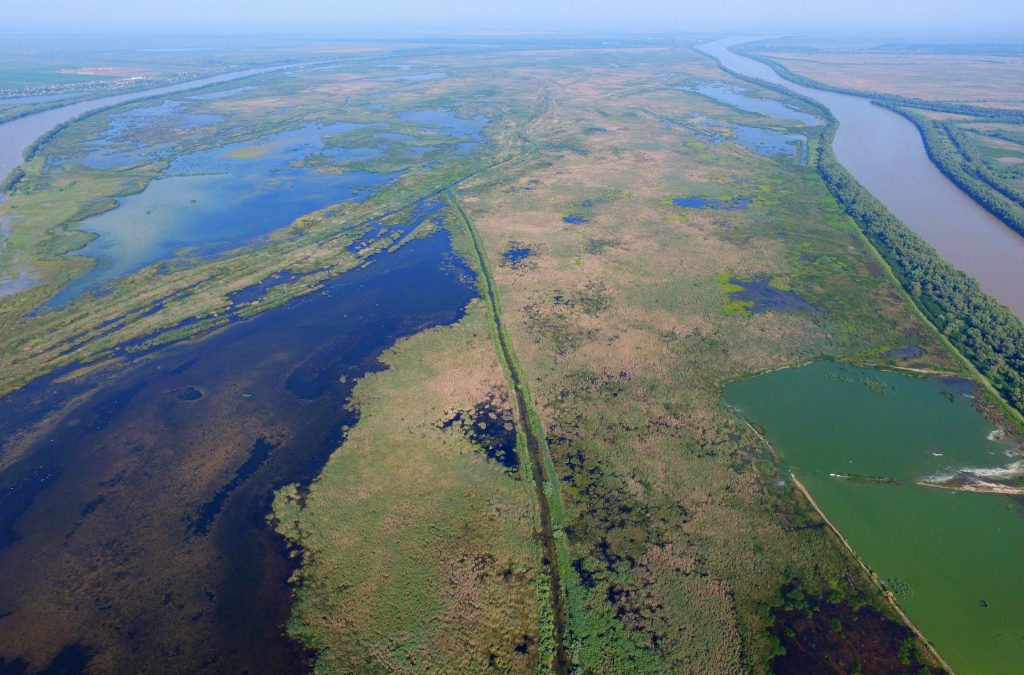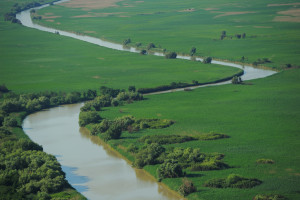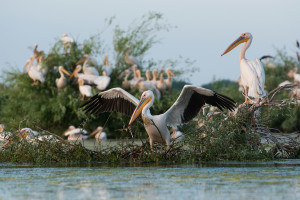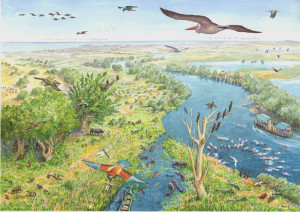Rewilding Europe is delighted to announce that rewilding activities in the spectacular Danube Delta, Europe’s second largest wetland, will now extend into Ukraine. This follows the signing of a partnership agreement with Rewilding Ukraine, a newly established local NGO.

Rewilding Europe and Rewilding Ukraine signed up to a five-year partnership in April, agreeing to work together in promoting and conducting rewilding activities on the Ukrainian side of the Danube Delta. By linking the Romanian and Ukrainian sides of the delta, this milestone agreement will support cross-border cooperation that involves a range of local authorities and partners. It will demonstrate how rewilding can improve the ecological functioning of the delta, and also benefit local communities, which in many areas are socially and economically challenged.

Beginning in the late 1990s as part of a World Wide Fund for Nature initiative, rewilding activities have a long history in the Ukrainian part of the Danube Delta. Successful projects have included the reflooding of Ermakov, Tataru and Daller Islands, which are now showing spectacular results.
Building on this, future rewilding efforts will focus on the outer delta of the Danube Biosphere Reserve, where we will work on wetland restoration, wildlife comeback, the development of nature-based businesses, and communication. Pilot sites will include Ermakov Island, Zebriynay Ridge, areas in the upper delta of Izmail Landscape Park, and the western group of Danube lakes (Kagul, Kartal, Kugurlui and Yalpug).
“Based on a shared vision, Rewilding Ukraine will work together with local partners, stakeholders and the Romanian Danube Delta rewilding team to support the protection and restoration of wild nature,” says Mykhailo Nesterenko, team leader of the Ukrainian rewilding team. “We will demonstrate and leverage the huge opportunities for a nature-based economy in this unique European wetland, ensuring that people, wild nature and wildlife all benefit.”

Covering around 580,000 hectares, the Danube Delta is home to diverse and abundant populations of breeding wetland birds – these include white and Dalmatian pelicans, white-tailed eagles, and a large variety of herons, storks, egrets, cormorants, terns and other species. It is also a critical stop-over and wintering area for hundreds of thousands of migratory birds. The massive productivity of the delta’s aquatic habitats means it is home to Europe’s largest number of fish species, supporting many fish-eating birds and mammal species.
Planned rewilding activities on the Ukrainian side will focus on setting up pilots for forest and wetland restoration, natural grazing projects with Tauros cattle, konik horses, water buffalo and possibly kulan (wild ass), monitoring beaver comeback, and the conservation of key species, such as pelicans. Projects will also promote the comeback of large carnivores – specifically the wolf and golden jackal – by simultaneously mitigating human-wildlife conflict, promoting coexistence, and increasing the availability of locally occurring natural prey, such as deer.

Our vision of the Danube Delta as one of the most well-protected and famous wildlife areas in Europe.
“Wildlife and wild nature obviously don’t observe political borders,” says Deli Saavedra, Rewilding Europe’s Regional Manager. “It is therefore great news that we can now work in a transboundary setting with teams in both Romania and Ukraine. The Danube Delta is a unique environment and cross-border activities are critical to its successful rewilding.”
By supporting nature-based businesses on both the Romanian and Ukrainian sides of the Danube Delta, Rewilding Europe will work to establish new income streams that support rewilding. We will collaborate with local populations, assisting in the development of wildlife watching tourism that will provide income and jobs for delta communities. Thanks to the newly enhanced financial capabilities of Rewilding Europe Capital, our enterprise funding facility that provides financial loans to new and existing businesses, we now have the ability to support such local, nature-based enterprises on a greater and more impactful scale.
